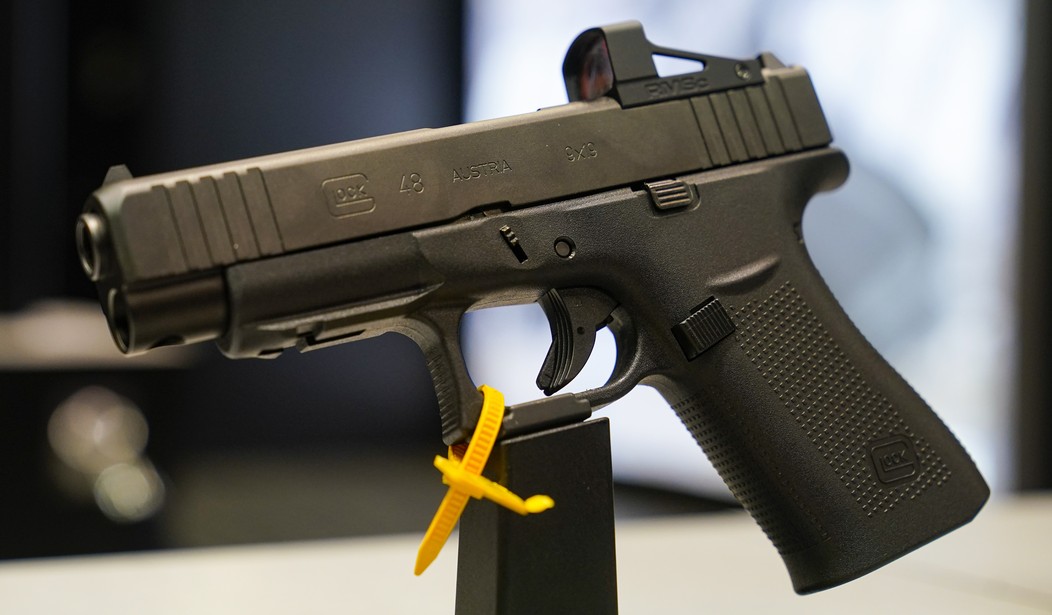In law, precedent is important. When the Supreme Court rules a certain way, the Court has a profound tendency to take that into account as it moves forward. Sure, they change precedent entirely from time to time, but that's still rare.
And on guns, whether we like it or not, the phrase "in common use" is part of the precedent. That means lower courts are supposed to take that into account when considering some kind of gun ban.
But states like California have a wonky interpretation of the phrase, and that has led to both assault weapon bans and not a ban on Glocks.
Attorney and legal scholar Jonathan Turley, however, sees things quite differently.
Gun control advocates have been chipping away at this concept by arguing that a variety of popular weapons, such as the AR-15, cannot be considered “in common use at the time” of the ratification.
Scalia, however, joined Justice Clarence Thomas in 2015 in a dissent in the denial of certiorari in Friedman v. Highland Park, involving a local ban on semi-automatic firearms. Thomas wrote that “several Courts of Appeals… have upheld categorical bans on firearms that millions of Americans commonly own for lawful purposes” and that such rulings are “noncompliance with our Second Amendment precedents.”
Thomas noted that such rulings suggested that states could ban “AR-style semiautomatic rifles” even though an “overwhelming majority of citizens who own and use such rifles do so for lawful purposes, including self-defense and target shooting. Under our precedents, that is all that is needed for citizens to have a right under the Second Amendment to keep such weapons.”
In the case of the AR-15, an estimated one in 20 Americans own such weapons. The Glock is even more popular. In 2021 alone, industry data shows that Glock produced 581,944 handguns with another 465,117 in 2022. It is also the weapon of choice for an estimated over 65 percent of law enforcement agencies.
Now, it's true that the AR-15 wasn't in common use at the time of the Second Amendment's ratification, but neither were personal computers. Does that mean we can regulate free speech on the internet?
Of course not.
Likewise, the idea that "in common use" only applies to what was available in the 18th Century is bonkers.
I have an issue with the phrase, since it leaves the door open to banning weapons technology that has yet to come. Let's say we finally get lasers or rail guns or something. In theory, those could be banned as the military and police departments deploy them, putting the American people at a tactical disadvantage.
However, that phrase still applies to modern firearms that are available, and there's no question that Glock is in common use. It is probably the single most popular brand of handguns in the country, as Turley points out. I cannot see how any semi-reasonable court could uphold such a law, considering how "in common use" should apply.
The unfortunate truth, though, is that as we've seen in so-called assault weapon ban challenges, it's not difficult to imagine courts doing so.
The question is that, post-Bruen, can they find sufficient rationale to ignore both "in common use" and the history, text, and tradition standard on such a popular firearm, especially when the reasons for the ban is premised on the idea that third parties might do something illegal to it?
Editor’s Note: The Schumer Shutdown is here. Rather than put the American people first, Chuck Schumer and the radical Democrats forced a government shutdown for healthcare for illegals. They own this.
Help us continue to report the truth about the Schumer Shutdown. Use promo code POTUS47 to get 74% off your VIP membership.








Join the conversation as a VIP Member